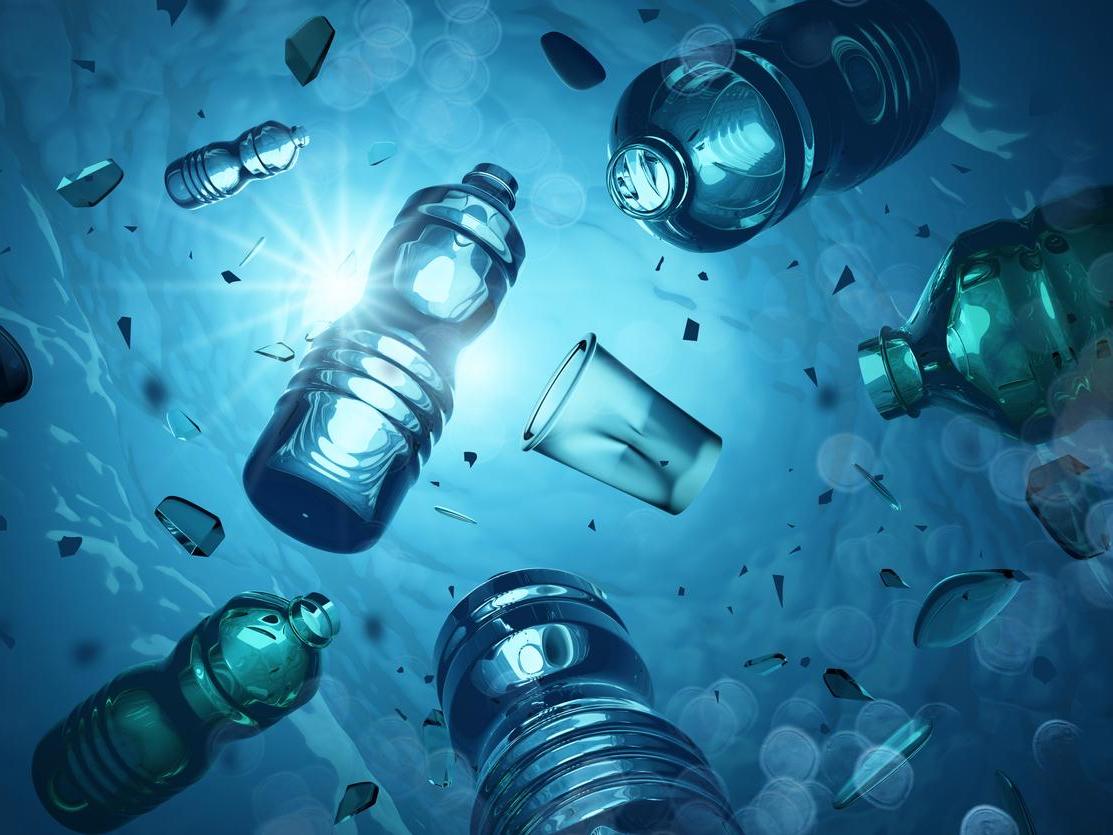Microplastic pollution in ocean could be double previous estimates, study finds
Researchers trawled the surface of coastal waters off the UK and US with finer mesh nets than typically used and captured vast quantities of shorter and thinner plastic particles

Microplastic pollution in the oceans is believed to be more than double the previous estimates, according to a new study.
A team of researchers, led by Plymouth Marine Laboratory, trawled the surface of coastal waters off the UK and US with finer mesh nets than have been typically used and found far more plastic particles in the waters than previously thought.
Plastic wreaks havoc on marine ecosystems. As plastic swirls around in the water, much of it breaks down to tiny pieces called microplastics.
Professor Pennie Lindeque, who led the study, said that the team focused on coastal waters, where microplastics are believed to have the greatest impact on marine life.
The scientists discovered that by sampling the waters using nets with mesh of 100 microns resulted in 2.5 times more plastic particles than the typically-used net with mesh of 333 microns, and ten times more than in nets with 500 microns as the finer nets were able to capture thinner and shorter microplastic fibers.
The results suggested that marine microplastic concentrations may currently be vastly underestimated and that there is likely closer to 12-125 trillion microplastics floating in the world's oceans. The previous ranges have estimated there were between 5tn and 50tn particles.
The study revealed that concentrations could be more than 3,700 microplastics per metre cubed. Professor Lindeque said the amount was "far more than the number of say zooplankton you would find in a meter cubed of water".
Zooplankton are microscopic organisms which fish feed on at the base of the marine food chain. They play an important role in shaping the extent and pace of climate change, one study notes. There is a risk that miniscule pieces of plastic could be taken up by zooplankton as a food source.
The Ocean Conservancy reported that many fish species also consume plastics debris, confusing it for real food and estimated that at least 600 different wildlife species are threatened by the pollution.
The team, also involving researchers from the University of Exeter and the Rozalia Project in the US, said the research would help better predict the risks that microplastics pose to marine life and ecosystems.
Professor Lindeque, Head of marine Ecology and Biodiversity at Plymouth Marine Laboratory, said: "Microplastics aren’t a uniform type of pollutant, rather they come in all different shapes, sizes and polymer types; determining how many of which types are in the natural environment is rather like looking for needles in a haystack."
She added: "A better understanding of how many microplastics are in our seas and a more detailed description of what type of microplastics they are, helps to determine what risk they pose to marine animals and ecosystems, which in turn can help influence societal behavior and drive future policy intervention."
The study was published earlier this month in the journal, Environmental Pollution.
Previous studies found that microplastics cause reduced feeding, fertility and growth in shellfish, plankton and fish. There is also a human health risk from plastic entering the food chain with nearly a billion people around the world consuming seafood as their primary source of protein.
Microplastics have been found in all corners of the world's oceans, including recently in Antarctic sea ice for the first time. And the plastic doesn't just pollute the ocean. A study published last week found that hundreds of thousands of ocean plastic pollution could be ejected from the water by sea spray and blown back to land with the wind.
Subscribe to Independent Premium to bookmark this article
Want to bookmark your favourite articles and stories to read or reference later? Start your Independent Premium subscription today.

Join our commenting forum
Join thought-provoking conversations, follow other Independent readers and see their replies